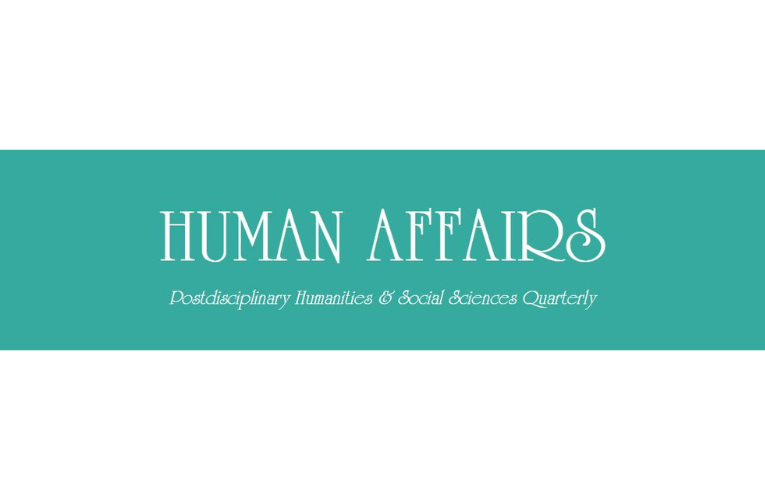Human Affairs, an indexed journal published by De Gruyter, invites proposals for the symposium on the Transformation of Social Sciences and Humanities with Generative AI.
Generative AI, with its ability to mimic human creativity and generate content autonomously, has a potential to bring transformative changes in various domains. This symposium aims to foster interdisciplinary discussions on the implications, challenges, opportunities, and limitations presented by Generative AI in shaping the future of Social Sciences and Humanities.
Generative AI encompasses a wide range of techniques, including language models, image synthesis, music composition, and more. This symposium invites researchers, practitioners, and scholars from diverse backgrounds in the social sciences and humanities to submit their original theoretical contributions, research papers, and case studies on topics related to Generative AI.
Contributions may address but are not limited to the following themes:
- Social Behavior: Social behavior is profoundly influenced by AI-generated content, which is becoming increasingly prevalent in online interactions, social media, and digital communication platforms. This theme delves into the impact of AI-generated content on individuals and society as a whole. It may explore how exposure to AI-generated content can shape emotions, attitudes, group dynamics, and behaviors.
- Education and Learning: Generative AI has the potential to revolutionize education and learning. What are the challenges, benefits, as well as risks of using AI in the classrooms (for students and/or for teachers)? What are the ethical considerations of using AI in educational contexts? In what ways can generative AI empower learners with disabilities and special educational needs?
- Identity and Gender: AI-generated identities and characters in media and literature have the potential to challenge traditional notions of identity and representation. This theme may explore how AI-generated content may impact gender representation, identity construction, and the portrayal of marginalized groups.
- AI in Creative Arts and Literature: Exploration of generative AI in art creation, literature generation, and the preservation of cultural heritage. Contributions may also investigate the interplay between human creativity and AI-generated creations.
- Cultural Heritage and Preservation: Utilizing generative AI to preserve and reconstruct cultural heritage through the generation of historical texts, art pieces, virtual heritage sites, and the challenges involved in ensuring accuracy and authenticity.
- Philosophy and Ethics: Philosophical inquiries into the nature of creativity, consciousness, and the ethical implications of AI-generated content. Contributions may explore the role of generative AI in challenging traditional philosophical topics, including epistemologies of social sciences and humanities.
- Social Policy and Ethics: Discussions on the ethical aspects of AI adoption in production of knowledge and social policy, including AI-generated content in political campaigns, misinformation dissemination, and considerations of bias and accountability.
- Digital Humanities: Collaborations between AI technologies and digital humanities, including data analysis, information retrieval, text digitization, and new methodologies enabled by generative AI.
- Historical Research: The application of AI technologies in historical research, including analysis of vast historical datasets, generating historical narratives, and offering new perspectives on historical events.
More information here: http://www.humanaffairs.sk/call-for-papers/







